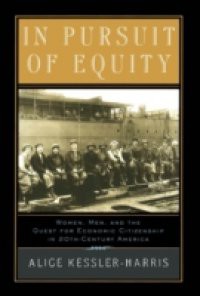Few historians have contributed more to our understanding of the history of women, and womens effect on history, than Alice Kessler-Harris. Author of the classic Out to Work, she is one of the countrys leading scholars of gender, the economy, and public policy. In this volume, Kessler-Harris pierces the skin of arguments and legislation to grasp the preconceptions that have shaped the experience of women: a gendered imagination that has defined what men and women alike think of as fair and desirable. In this brilliant account that traces social policy from the New Deal to the 1970s, she shows how a deeply embedded set of beliefs has distorted seemingly neutral social legislation to further limit the freedom and equality of women. Government rules generally sought to protect women from exploitation, even from employment itself; but at the same time, they attached the most important benefits to wage work. To be a real citizen, one must earn--and most policymakers (even female ones) assumed from the beginning that women were not, and should not be breadwinners. Kessler-Harris traces the impact of this gender bias in the New Deal programs of Social Security, unemployment insurance, and fair labor standards, in Federal income tax policy, and the new discussion of womens rights that emerged after World War II. For generations, she writes, American women lacked not merely the practice, but frequently the idea of individual economic freedom. Only in the 1960s and 70s did old assumptions begin to break down--yet the process is far from complete. Even today, with women closer to full economic citizenship than ever before, Kessler-Harriss insights offer a keen new understanding of the issues that dominate the headlines, from the marriage penalty in the tax code to the glass ceiling in corporate America.

